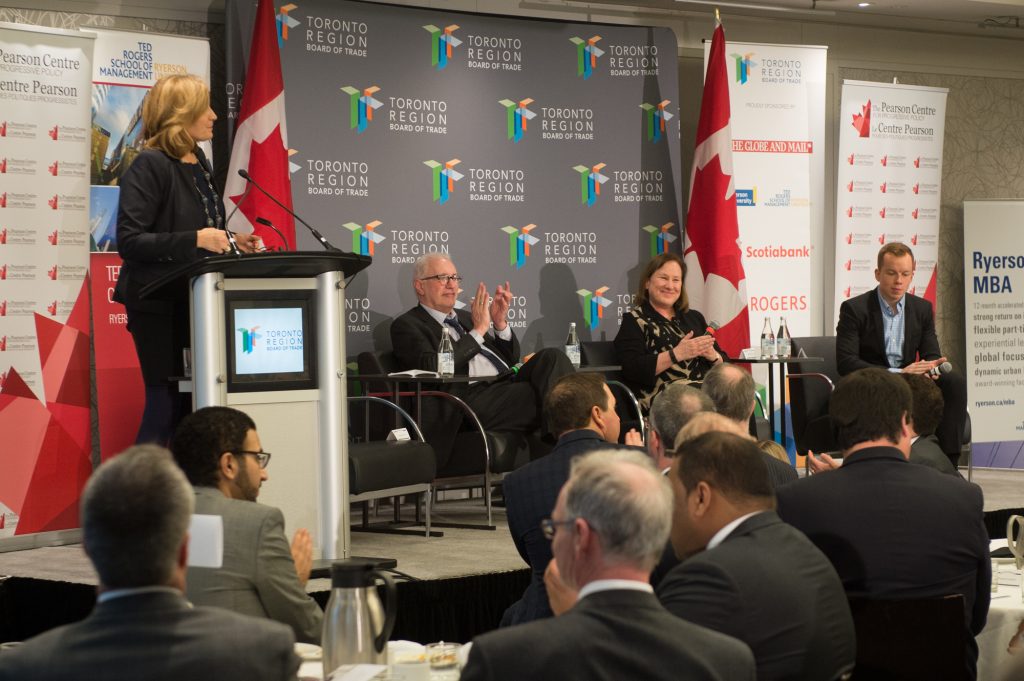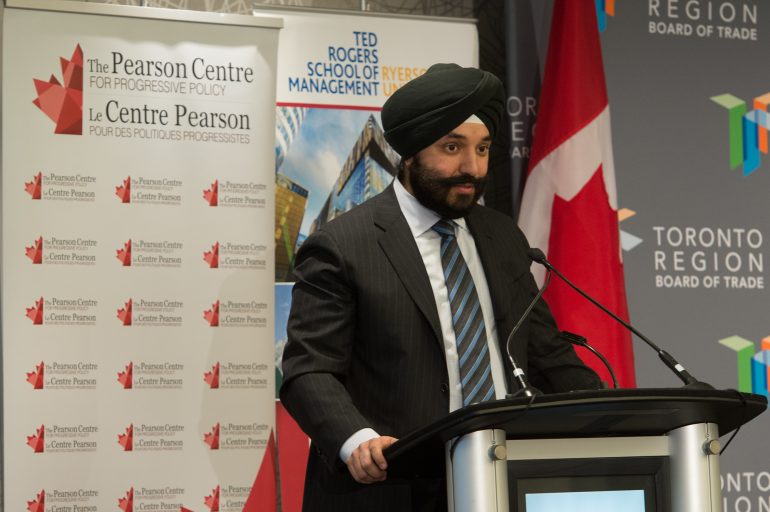Just a few months ago, Prime Minister Justin Trudeau scrapped the title of industry minister and appointed MP Navdeep Bains to the new position of minister of innovation, science and economic development. Political commentators said that this signalled the new federal government’s commitment to prioritizing science and innovation as economy-builders for Canada.
With investments like the clean water tech fund and $40 million to MaRS cell regeneration research, it’s clear the government is making some attempt at trying to boost early-stage companies. But Canada, which currently sits at a ‘C’ grade for innovation according to the Conference Board of Canada, still has a lot of work to do to address its deteriorating business innovation climate. According to the Science, Technology and Innovation council of Canada, a lack of investment in business R&D and an imbalance between direct and indirect government support in business R&D were major contributors to the country’s low grade.
This week at the Toronto Region Board of Trade’s downtown office, Minister Bains stood before the businesses being affected by these issues, and invited other major players in the startup ecosystem to address both the shortcomings and requirements needed to boost Canada’s startup climate at the government level. He was joined by Sheldon Levy, Deputy Minister of Training, Colleges and Universities; Dr Ilse Treurnicht, CEO at MaRS, and Stephen Lake, co-founder and CEO of Thalmic Labs.
“All of us have to be startup-friendly, this isn’t only government. This is also for corporations. You have to look at entrepreneurs and realize they’re not going to have the insurance or track record of 300 pages,” said Levy. “There’s going to be a level where the IP barrier is real. It’s probably between a company of 100 to 200 where you’re going to be stopped in your tracks and someone is going to challenge your IP. We need to be more in tune with the necessity of having IP as a literal commercial product with which we go to battle.”

Treurnicht agreed with Levy, adding that Canada lags behind other countries in economic performance because other countries always dedicate more to innovation. “We need to take a cold hard look at innovation pressures globally and advise on an action plan focused on Canada’s strengths, and ensure that companies can grow and scale through that landscape,” she said.
As a startup founder living in the Waterloo region since 2007, Lake had particularly telling insight into the issue of fostering Canadian startup culture. He named the University of Waterloo’s Velocity program, where he started Thalmic Labs and learned the basics of starting a business, as a highly effective program that encourages entrepreneurship. But when it came time to turn to provincial programs more suitable for growth stage companies, Thalmic Labs didn’t even qualify even as the same sort of startup the programs tried to target; many programs called for thresholds like four years of profitability or being a certain size.
“The government perspective is to be very risk-averse, but from the startup perspective, you have to place bets,” said Lake. “It’s hard being a startup company and not having years of history to take advantage and grow.”
“We have to confront the reality that industries where large portions of our population are employed today likely won’t exist in the next ten years.”
– Stephen Lake, Thalmic Labs CEO
To encourage growth, Lake suggested that the government should focus on more startup-dense regions rather than trying to spread resources ‘fairly’ across all regions of Canada. “It’s very hard for the government to pick winners. We like to spread resources thin and make voters happy. But it doesn’t work like that when building an innovative economy — when you think of innovation in the U.S., you don’t think of Nebraska, you think of the Valley,” he said. “We have an innovation centre in Timmins, but we need to place bets and see where we can win at, and the Toronto-Waterloo corridor will probably make these wins.”
He also said that Canada needed to decide what kind of industry that it wants to lead, as many of the industries that make Canada profitable today likely won’t exist in the near future.
“We have to confront the reality that industries where large portions of our population are employed today likely won’t exist in the next ten years. How does this government make the transition? We have to shift resources from where they are, which is risky because that’s where we’re generating revenue, but it’s not sustainable for the future.”
To bridge the gap between program implementation and actual outcomes, Lake said that the government needs to think about what it wants Canada to be. “Set extremely ambitious goals for what we want to achieve five years from now. Do we want self-driving cars? Do we want a health care innovation that’s going to make our healthcare system 30 percent more efficient? We can make audacious goals and set these and work backwards specifically fund these companies,” he said. “If we say as a country that we want to be a leader in this area, companies will form and people will find a way to solve it.”
After hearing the criticisms, Minister Bains reaffirmed the Government’s dedication to fostering clean tech and health tech startups, and acknowledged that the government was still going through a learning process for how to best help startups, and implored the business community to believe in the young, inexperienced startup founders moving away from the status quo.
He also said that the issue of taxing stock options, which has raised outcry in the startup community, will be addressed in the Liberal budget announcement on March 22. “We’ve been engaged with the companies and we’ve addressed their concerns, and we understand that this is a legitimate form of incentive for companies,” he said.
Photo credit: Toronto Region Board of Trade


